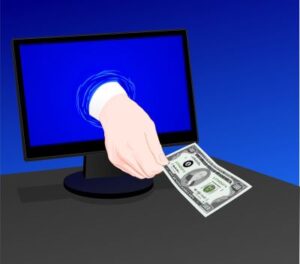Did you know there are grant opportunities for those with disabilities, including those in the neurodivergent community? One came from my home state, Colorado, through the Division of Vocational Rehabilitation (DVR).
After years of struggle as an independent author, a glimmer of hope emerged when I learned about the DVR grant. You see, I have bipolar disorder.
Unique Perspectives
I’m not unique. The National Alliance on Mental Illness, reports three percent of U.S. adults are afflicted. Ten percent are diagnosed after they’re fifty. This was me when I was fifty-one. I spent a week mental treatment facility and years getting used to my new life.
Bipolar, along with related symptoms like depression and ADHD, places me in the neurodivergent community. Basically, our brains process information differently from what’s considered typical – whatever that is. Those with dyslexia, OCD, and Autism Spectrum Disorder (ASD) are part of this group.
This doesn’t mean we’re disabled. In fact, we probably work with or hang out with you. Yet, sometimes, we have issues with everyday routines.
Money
For example, earning a living. As creatives, we would love to sit at our desks and write. However, fatigue, anxiety, loneliness, and wrong decisions take over more for us than for “typical” individuals.
The thing is, we need cash to hire book editors and cover designers. We need funds to market and buy copies to sell at speaking engagements and book fairs. Nevertheless, something pushes us away from working toward these monetary goals. This is why we may need outside help to reignite our motivation. For me, this was the DVR grant.
I reached out to speakers about the funding opportunity. A week later, I eagerly committed to moving forward. As I did, I learned the grant was for disabled individuals to start or grow their small businesses. For me, it was a chance to publish my memoir on mental illness and get it out to a ready audience. Once approved, all costs required for a full-throttle book release would come from the grant.
The Process
This wasn’t a simple process. I had to create a business plan and complete a feasibility statement, Additionally, I had to research memoir markets, particularly for titles written by those with bipolar disorder.
Fortunately, the grant provides you with a mentor. Working through emails and meetings we properly formatted the information. I also had to complete a rough draft of the memoir. In the spring of 2024, I output one to two thousand words a day to ready a workable manuscript. The push invigorated my creative soul after years of emptiness.
As of this writing, Faith and Slipper Socks is on its way to the grant committee for approval. The publisher believes it can be released in the fall of 2024, which would be an enormous accomplishment.
Finding Your Grant
Finding a grant for disabled/neurodivergent individuals isn’t as difficult as it may seem. First, visit the US Chamber of Commerce. They have listings of national and regional programs to assist.
Further, review state options. If your state lacks a vocational rehabilitation department, contact their office of economic development. Small business development centers near you can also point you in the right direction.
Don’t be upset if there’s nothing solely for creatives. Many of these programs are for disabled business owners. You must consider yourself one as well while preparing your manuscript.
Finally, don’t do this alone. Ensure you’re assigned a mentor to help. A guiding force can reduce your anxiety and minimize the pressure to complete tasks. In doing so, they’ll keep you on the path to publishing.
Neurodivergents and disabled creatives, don’t let your conditions stop you from fulfilling your dreams. Seek out funding opportunities to help you take those next steps.
Bio:
Rich Scott Keller is the owner of Wooden Pants Creations, author, and mental health proponent. His memoir on bipolar disorder, Faith and Slipper Socks, is scheduled for a Fall 2024 release.
8114095 © Adonis1969 | Dreamstime.com
I have bipolar disorder, I’m on disability because of it. I’ve written a manuscript but don’t have the funds to publish and market it. Is this Grant applicable to me?
I have no idea. You have to match the desire of the grant provider to what you need. Look for grants in your region. Not all of these listed apply to you.
Hi, Darin,
You have to check your state’s DVR to see what they offer as each one is different. Good luck.